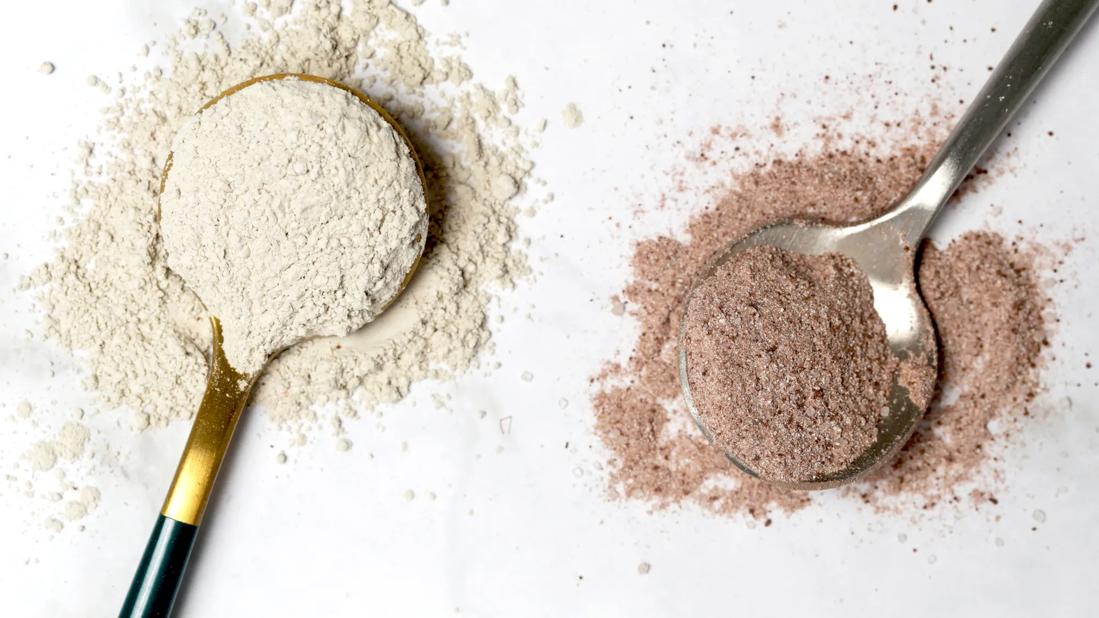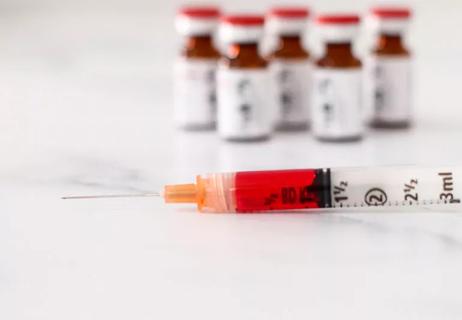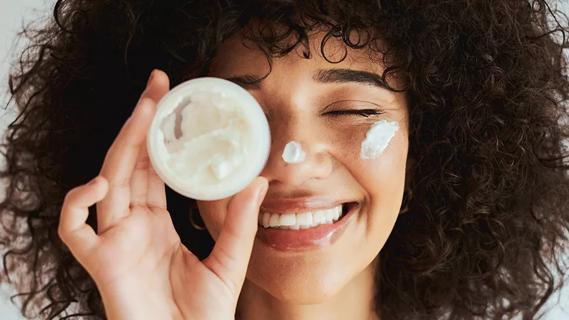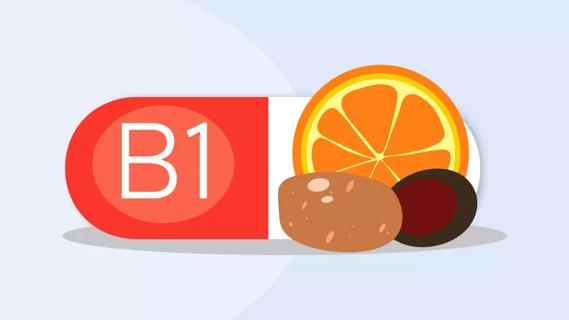Taking supplements with biotin can cause inaccurate lab test results

Biotin, or vitamin B7, plays an important role in your overall health and well-being. And while biotin supplements can be a healthy addition to some people’s routines, they can come with a downside, too.
Advertisement
Cleveland Clinic is a non-profit academic medical center. Advertising on our site helps support our mission. We do not endorse non-Cleveland Clinic products or services. Policy
We talked with family medicine practitioner Matthew Goldman, MD, about the side effects of biotin supplements, and why it’s important to stop taking any supplement containing biotin before having certain laboratory tests.
Biotin is typically considered to be a safe supplement. It’s water-soluble, which means that what your body doesn’t use passes through your urine.
Although rare, biotin may cause these side effects:
But the biggest drawback?
High levels of biotin can interfere with the accuracy of certain common lab tests. Meaning, if you take a supplement with biotin and then get bloodwork and other lab tests to rule out, say, a thyroid condition (or a host of other tests), the results may not be accurate.
The U.S. Food and Drug Administration (FDA) issued a safety alert warning about the risks of biotin affecting lab tests. The organization shares this complete list of tests that biotin can interfere with.
Affected tests include those used to diagnose conditions such as:
“High levels of biotin can lead to falsely high or low results on lab tests that use biotin-streptavidin technology, which is common in several lab tests,” Dr. Goldman reports.
Advertisement
Here’s why it happens.
Many labs use immunoassay-based screening methods for these tests. It’s a testing method that measures the presence and concentration of a small molecule in a solution. If you have too much biotin free-floating in your system, it can throw these tests off.
In other words, the biotin in your system can replace what tests are measuring for in the solution and create false readings, Dr. Goldman explains.
Results may appear falsely low or falsely high, depending on the specific testing method. And lab results affected by biotin supplements aren’t always obvious to your healthcare provider or the lab conducting the test.
“Because biotin can interfere with lab tests, it can lead to misdiagnosis or inappropriate management of medical conditions,” Dr. Goldman emphasizes.
The typical recommendation is to stop taking biotin at least 72 hours before having tests done. But that guidance can vary depending on the test to be performed and how much biotin is in your supplements.
“If you’re concerned about how supplements might affect future or previous lab results, speak to a healthcare provider and the lab performing the test. Let them know about any medications and supplements you take,” Dr. Goldman advises. “Making sure everyone is on the same page can help ensure you receive accurate lab results and get the best care.”
The good news is that biotin that comes from foods rather than supplements isn’t likely to affect your lab results.
“Biotin-rich foods typically don’t contain excessively high amounts of the vitamin,” Dr. Goldman reiterates. “Overconsumption is only a concern with supplements, particularly at high doses.”
What’s more, biotin deficiency is rare. And while you may think a bottle of supplements will give your hair or nails a healthy boost, the science on their effectiveness is limited.
Skip the supplements (and save some money) by boosting your biotin levels naturally by eating these biotin-rich foods, like beef liver, eggs and canned salmon.
Even relatively low doses of biotin supplements can affect lab results. But the higher the dose, the greater your risk.
“Even the biotin content found in common multivitamins can interfere with lab tests,” Dr. Goldman states. “Higher doses, like the amounts found in supplements for hair and nail health, are more likely to cause issues.”
The exact content of biotin and other vitamins in supplements can vary greatly. But consider the biotin content of these typical supplements. And check your supplement’s nutritional information to understand your intake.
Advertisement
| Example supplement | Biotin content in micrograms (mcg) | Biotin percent daily value (DV) |
|---|---|---|
| Kids multivitamin | 6 mcg | 40% to 75% (depending on child’s age) |
| B-complex vitamin | 30 mcg | 100% |
| Adult multivitamin | 40 mcg | 133% |
| Prenatal vitamin | 35 mcg | 100% |
| Super B-complex vitamin | 300 mcg | 1,000% |
| Hair, skin and nail vitamin | 3,000 mcg | 10,000% |
| Example supplement | ||
| Kids multivitamin | ||
| Biotin content in micrograms (mcg) | ||
| 6 mcg | ||
| Biotin percent daily value (DV) | ||
| 40% to 75% (depending on child’s age) | ||
| B-complex vitamin | ||
| Biotin content in micrograms (mcg) | ||
| 30 mcg | ||
| Biotin percent daily value (DV) | ||
| 100% | ||
| Adult multivitamin | ||
| Biotin content in micrograms (mcg) | ||
| 40 mcg | ||
| Biotin percent daily value (DV) | ||
| 133% | ||
| Prenatal vitamin | ||
| Biotin content in micrograms (mcg) | ||
| 35 mcg | ||
| Biotin percent daily value (DV) | ||
| 100% | ||
| Super B-complex vitamin | ||
| Biotin content in micrograms (mcg) | ||
| 300 mcg | ||
| Biotin percent daily value (DV) | ||
| 1,000% | ||
| Hair, skin and nail vitamin | ||
| Biotin content in micrograms (mcg) | ||
| 3,000 mcg | ||
| Biotin percent daily value (DV) | ||
| 10,000% |
Talk with a healthcare provider if you’re concerned about the effects biotin supplements can have on your health or their influence on your lab results.
Advertisement

Sign up for our Health Essentials emails for expert guidance on nutrition, fitness, sleep, skin care and more.
Learn more about our editorial process.
Advertisement

The popular skin care ingredient can help smooth, brighten and strengthen your skin

Though it was once used as a cholesterol-lowering medication, niacin is no longer a recommended treatment

Some protein-containing foods are known to be good sources of biotin — but there are also likely other foods that just haven’t been studied yet

This essential nutrient helps convert food into energy, but don’t expect wonders for your nails and hair

This important B vitamin has benefits for your heart, brain and skin

If you have low B12 or a true deficiency, these shots can work wonders

Pantothenol is a powerful moisturizer and can help repair damaged skin and hair

Getting enough thiamine in your diet can protect your heart, brain and nervous system

Even small moments of time outdoors can help reduce stress, boost mood and restore a sense of calm

A correct prescription helps your eyes see clearly — but as natural changes occur, you may need stronger or different eyeglasses

Both are medical emergencies, but they are very distinct events with different causes